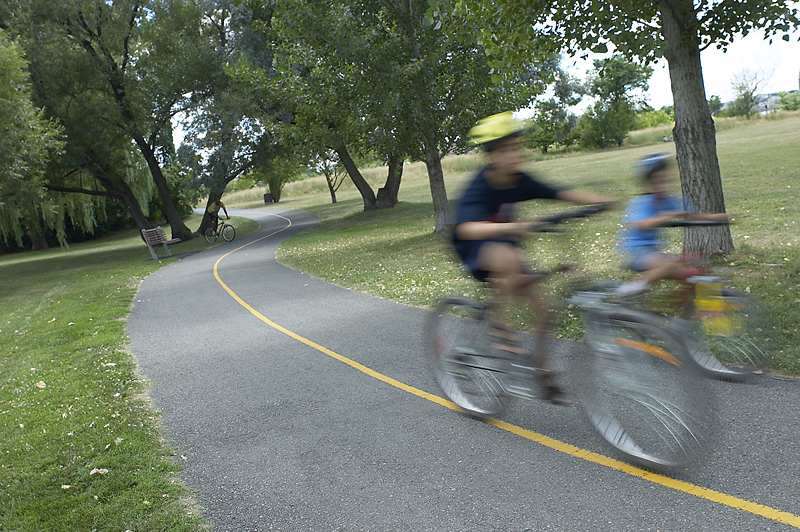
TUESDAY, Oct. 14, 2014 (HealthDay News) — Although exercise has long been thought to help improve the symptoms of depression, teenagers may not reap these benefits, a new British study suggests.
The study found that physical activity levels in early teen years didn’t appear to affect rates of depression in later teen years.
“Those participants who were more physically active in early adolescence did not subsequently have significantly lower (or higher) depressive symptoms or significantly altered odds of depressive disorders in later adolescence,” the study authors wrote.
“Although it is important to promote physical activity because of its well-documented effect on physical health, during adolescence, physical activity may not serve as a strong protective factor of developing depressive symptoms or disorders,” they added.
However, some U.S. experts questioned the findings based on the study’s design, noting, for example, that the researchers didn’t delineate the type of activity performed, or whether it was done by choice or as part of a physical education class.
The research, published online Oct. 13 in JAMA Pediatrics, involved more than 700 teens who were tracked from November 2005 through January 2010 by a team led by Umar Toseeb from the University of Cambridge.
At the start of the study, the researchers measured weekday and weekend physical activity of the teens, whose average age was 14. They also had the teens fill out a questionnaire about their mood changes.
The teens averaged about 53 minutes of moderate to vigorous physical activity each weekday, and about 32 minutes daily on the weekends, according to the study.
Three years later, when the participants were 17, the researchers had them all fill out the mood questionnaire again.
The researchers didn’t find any connection between the levels of physical activity at age 14 and any depression experienced at age 17.
“Our findings do not eliminate the possibility that physical activity positively affects depressed mood in the general population; rather, we suggest that this effect may be small or nonexistent during the period of adolescence,” the researchers wrote.
Tony Tang, an adjunct professor in the department of psychology at Northwestern University, said the findings were “very intriguing, since physical exercise is often the first thing we recommend to adult clients.”
Tang, who was not involved in the study, thinks there may be something unique about the physical activity teens do that makes it different from exercise done by adults. Perhaps only voluntary exercise prevents depression, he said.
“Our adult clients exercise only when they want to, but other people make adolescents exercise all the time. Their schools have PE classes; their parents sign them up for swimming lessons; their coaches make them get up early for football practices, etcetera. Perhaps ‘exercise without consent’ is not as psychologically beneficial as voluntary exercise,” he said.
But Tang took issue with how the study was done. “The authors should have measured depression much more thoroughly,” he said.
An adolescent might have been depressed during most of the three years of study, but if the depression episode ended a few weeks before the interview, then he or she would be labeled depression-free, Tang said.
“This is far from ideal. They should have tracked all depression episodes during the last year of the study,” he said.
Simon Rego, director of psychology training at Montefiore Medical Center/Albert Einstein College of Medicine in New York City, said, “It is surprising that the researchers failed to support their hypothesis that participants with higher levels of physical activity in early adolescence would have lower levels of depressive symptoms later on.”
Rego also sees problems in how the study was done, specifically that the researchers did not measure levels of physical activity at the end of the study.
“This omission seems particularly significant, given the age of the teens at the start and end of the study and given all of the developmental and psychosocial changes that typically occur within it, such as increasing demands at school, obtaining a driver’s license, not being good at sports, lack of active role models, busy/working families, dating, etc. — any of which may negatively impact physical activity,” he said.
Rego added that the amount of physical activity you do is important, but how it impacts your life also matters.
“For example, rather than just being about physical activity per se, for some patients, the physical activity may serve a social function, such as connecting with others, getting social support and generating a sense of belonging, which helps to improve their mood and/or serves as a buffer to mood slips,” he said.
Unfortunately, the researchers did not collect any data on the context of physical activity, so they did not examine this aspect, Rego noted.
“Taken together, these limitations raise serious questions about the results and conclusions of this paper,” he said.
More information
Learn more about spotting depression in teens from the National Library of Medicine.
Copyright © 2025 HealthDay. All rights reserved.

